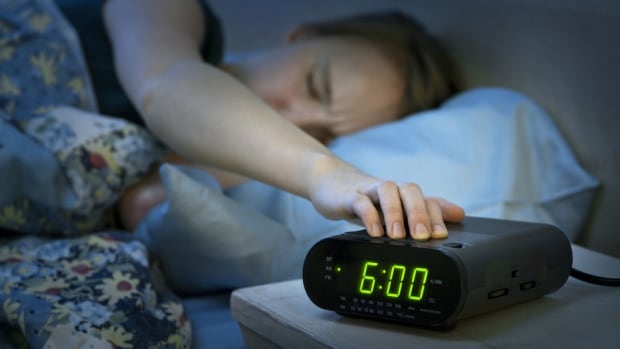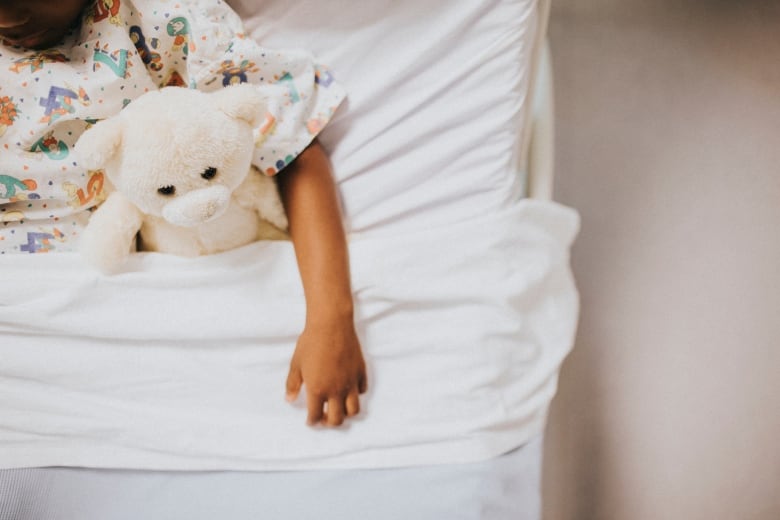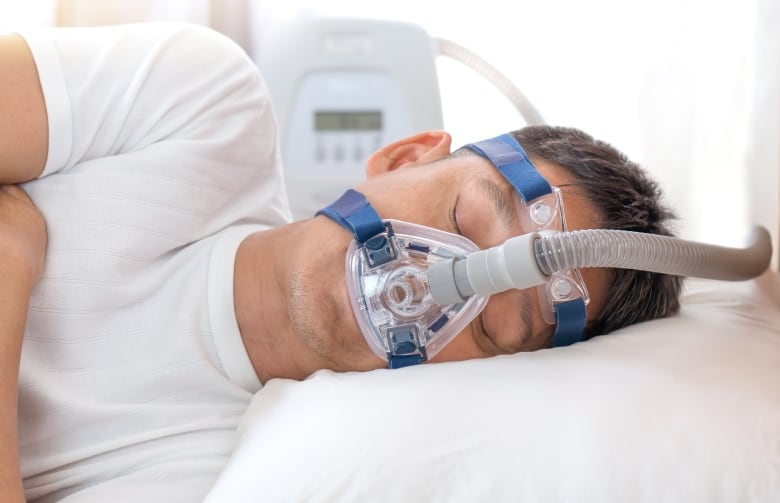
This weekend marks a return to daylight time for most Canadians, with clocks springing forward one hour.
For many, it also means a loss of sleep and a disruption of our circadian rhythms, our body’s natural way of keeping track of day and night.
“We have more evening light exposure and more darkness in the morning. And so fundamentally that will shift our circadian rhythm,” Dr. Elliott Lee, a sleep specialist at the Royal Ottawa Mental Health Centre, told Dr. Brian Goldman, host of CBC’s The Dose.
“It’ll make it a little bit more difficult to fall asleep the following day and results in a delay in our sleep phase over time.”
People will often struggle after the time change because of either the misalignment of our circadian rhythms or that extra hour of morning darkness, Lee said.
“If the timing of sleep is not aligned with our own circadian rhythms, then both the quality and the quantity suffer,” he added.
Getting more light later in the day can also make a difference to our sleep. But experts say making small, manageable changes to your sleeping schedule will make it easier to get some shut-eye.
Ideally you’d go to bed a little bit earlier each night the week before the clocks move forward, says Azadeh Yadollahi, senior scientist at the University Health Network’s KITE Research Institute and an associate professor at the University of Toronto.
So what else can we do to prepare for the time change — and adjust to it?
Go to bed early
On the Saturday night before daylight time, “try to go to bed early and specifically have a light dinner,” Yadollahi told John Gaudi, guest host of CBC’s Labrador Morning.
Getting outside Sunday morning after the time change is especially important, said Yadollahi.
“Go for a walk — anything that you can do to do exercise and get exposure to sunlight will help with adjusting to the new change,” she said.
LISTEN | How to prepare for the time change this weekend
The Dose23:26How can I sleep better around Daylight Saving Time?
For most people, Daylight Saving Time disrupts their sleep schedule. But thankfully Dr. Elliott Lee, medical director of the Sleep Disorders Clinic at the Royal Ottawa Mental Health Centre, has some ways to prepare for the time change this weekend. For transcripts of this series, please visit: https://www.cbc.ca/radio/podcastnews/the-dose-transcripts-listen-1.6732281
You can also make changes to your bedroom to control your light exposure, said Jennifer Bond, a registered respiratory therapist and clinician at The Snore Shop in Saint John, N.B.
“You can trick your body into adjusting with the light by closing the curtains and making it dark so you can fall asleep earlier — and opening the curtains earlier in the morning with the light and helping your body wake up,” said Bond.
Lee also advises taking it easy as much as you can in the days following the switch.
“If you have that luxury, try to make work a little bit easier, not scheduling a heavy work day,” he said.
Have good sleep hygiene
Paying particular attention to our sleep hygiene around the change is also helpful, said Lee.
“Sleep hygiene, fundamentally, is just habits that we can do to train ourselves to be a better sleeper,” he said.
Experts agree that good sleep habits include:
- Avoiding screens for an hour or two before sleep.
- Restricting caffeine and alcohol.
- Creating a wind-down routine before turning in.

Your daytime activities can also be part of sleep hygiene. Exercising will reduce stress and help stabilize your mood, said Bond.
It’s also best to maintain a regular sleep schedule, she said.
“People think, ‘Oh, I’ll sleep in on the weekend.’ For good sleep habits and good quality sleep, it’s always best just to try and keep your normal schedule.”
How can I help my kids adjust?
For parents and caregivers of young children, this weekend’s time change presents a further challenge: adjusting your kids’ schedules along with your own.
“[Kids] don’t have the usual biological devices that adults have to kind of tolerate different changes in their sleep patterns. So they benefit much more than adults from, sort of, a regular sleep schedule and regular predictable schedule,” said Lee.
“They suffer a lot more when that schedule is misaligned through forces that are beyond their control.”
WATCH | Why getting more sleep can add years to your life
Lee and Yadollahi agree that getting outside Sunday morning will help kids re-adjust more quickly.
“It’s probably the single biggest thing that we can do to help keep the circadian rhythm intact for kids is to get them that morning light exposure, particularly outside,” said Lee.
Can sleep aids help with the time change?
Though the market is full of sleep aids that promise a good night’s rest, there is only one that could help with the switch to daylight time, said Lee. And that’s melatonin.
“It can actually help shift our sleep cycle if properly timed and dosed,” he said.
The timing depends on your circadian rhythm, said Lee, but as a general rule, he recommends some people taking one to three milligrams of melatonin between 7 and 9 p.m.
There are potential side effects from melatonin, however, said Lee, including sedative effects, disturbing dreams, or interactions with other drugs. If you experience any of them, it’s best to talk to your health-care provider, he added.
“Everybody has to sort of experiment a little bit with their own circadian rhythm. But taken at that time, it can help accelerate the adjustment to daylight [time] in the right person,” he said.
When is it time to talk to a sleep expert?
If people are practising good sleep hygiene and still find themselves unable to get a solid night’s rest, it could be time for a sleep assessment, said Lee.
Bond, the respiratory therapist in Saint John, does those kinds of sleep assessments as well as testing for sleep apnea, a condition in which your breathing stops and restarts many times throughout the night.

There are many common symptoms to sleep apnea, said Bond.
“If a person’s gasping, choking, feeling like they can’t catch their breath during the night; headaches, depression, anxiety, all those things would be a bit of a red flag to say, ‘Oh, maybe I should get my sleep checked,'” she said.
Other symptoms include waking up with a dry throat or having trouble falling back asleep if you wake up in the night, said Bond.
“You can go on to develop some quite significant health issues if you don’t get it treated,” she said.
There are several different treatments for sleep apnea, depending on the severity, said Bond, the most common one being a CPAP machine to help people breathe better while asleep.
For Lee, creating that healthy wind-down routine before bed is key to getting a good night’s rest.
“The drive to sleep is incredibly strong. It’s almost as strong as the drive to breathe. So as long as we’re not doing things to kind of affect that drive, then we just let that drive take over.”
And if you do wake up in the middle of the night? Don’t look at the clock.
“That clock actually makes us think about our sleep and then can work to sabotage your sleep,” said Lee.